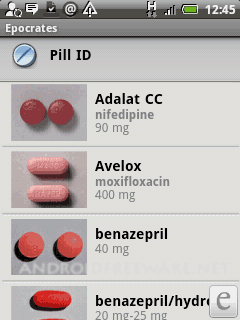Third year extension is proving to live up to one of the commonly used posters advertising Peace Corps Service, or at least one of the phrases colloquially known to describe service “it is a 24/7 job.”
I am finding myself waking up from my previous job into my other job, then I get home and I have to do my other one. Shifting between PCVL and the IT staff at the College and then 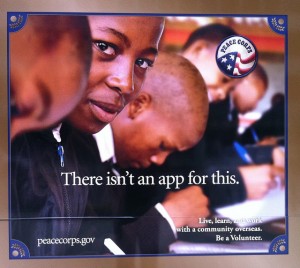 trying to maintain laser-focus on my future post-service is exhausting.
trying to maintain laser-focus on my future post-service is exhausting.
While spending my time as PCVL trying to come up with really great ways to help the other volunteers, I find myself arms-deep one minute in cmdline troubleshooting over the phone to then figuring out how can a PCV take their handicraft idea to the next level. Computer problems are felt with more impact here, if your computer chokes, you could be in a world of hurt. Viruses cause a lot of issues in Swaziland, both HIV and computer viruses. I have lost count the number of times I have to unhide files or scan a drive. At other times I find myself burning hours searching the internet for tools, ideas, and partners that could make SCS rock this place.
I have found some incredibly interesting programs floating around the internet, and a lot of browser extensions that are cool. Well at least their cool in the always-online world, here… I am forced to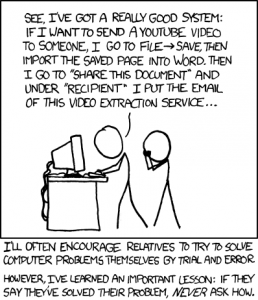 remove a few of these and do everything I can to adapt the rest. A great example of this is Google Voice, I have a phone number and at home it forwards flawlessly to my regular phone. Simple and easy. Here you can’t actually forward a Google Voice number to a Swazi phone number. One of the small ramifications of just the way it is here. But… you can have Google Voice attempt a transcript of your message and have that sent to your email, so you can easily get “close” to proper functionality. It’s like half the bang for most of the buck. It’s hard to complain about an otherwise free service, but it is difficult to know that only a few small non-technical challenges are in the way.
remove a few of these and do everything I can to adapt the rest. A great example of this is Google Voice, I have a phone number and at home it forwards flawlessly to my regular phone. Simple and easy. Here you can’t actually forward a Google Voice number to a Swazi phone number. One of the small ramifications of just the way it is here. But… you can have Google Voice attempt a transcript of your message and have that sent to your email, so you can easily get “close” to proper functionality. It’s like half the bang for most of the buck. It’s hard to complain about an otherwise free service, but it is difficult to know that only a few small non-technical challenges are in the way.
Other days I spent a good amount of time trying to figure out how all the existing systems and networks and connections we have can be reshaped and reused to better service for the volunteers. I do a lot of thinking. While I was writing this paragraph, a lot of thinking just went into how can that PCVs handicraft project get expanded. At this point I have a few notebooks of ideas, notes applications on my phone, notes online, notes on my hand, and notes in my head. I don’t need anyone to invent any new surfaces for me to scribe on. Instead of adding to the pile, I recognize it is time for me to start checking off that list at a speed reminiscent of Hermes approaching top speed.
Later at night after I moved on from the PC office and sped down the street in my four-Rand khumbi going far too fast without a seat belt, I find myself at home. At least it is my part time home. It’s great to live here actually, and when I’m here it is home. I make myself a bit of dinner and I grab a drop or two of wine. I turn on the Internet (no seriously, I leave it off just in case it eats 1kb for some reason) and I actually sit down and read my email or Facebook. I remember doing this level of relaxing often back at home, but I only cling to it for the first 15-30 minutes I am relaxed before that urge to go back to work strikes me.
I’ve been hitting up Coursera a bit hard lately, with the obvious exception of tonight. I’m currently enrolled in two classes, an “Introduction to Networks”, and the “Critical Thinking in Global Challenges.” The classes may not be the best use of my time, so often I wander over to LinkedIn to post a few things in a group I am a member of. Occasionally I do a bit of research on online degree programs I may be able to accomplish while I’m here. Or I decide its time to reformat that PC, or burn that DVD that I’m trying to produce. And then I check my Facebook, and I’m relieved to see something educational via “Science is Awesome.” That’s one of the best parts of the day, making sure I learn something that makes me go “Huh?” every day.
A bit later in the evening after I’ve given up on productivity; discussion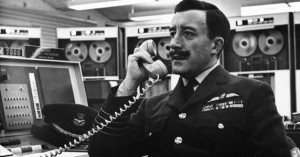 s with my also-extending flatmate run late into the night. Sometimes its light-hearted reminiscing about watching chickens for a day while back at site, and other times its a flash to the “Situation Room” where lives could very well be on the line if we can’t solve all the perceived problems in the world before the night is over. I bet watching those chickens for another hour will solve those problems. Or quite possibly it may only waste yet another hour watching chickens. Even as I write this I can think of so many worse things to do, than be on the homestead and watching that incredible repetition; peck, scratch, peck, scratch, squawk, peck, scratch. And repeat. Oh chickens.
s with my also-extending flatmate run late into the night. Sometimes its light-hearted reminiscing about watching chickens for a day while back at site, and other times its a flash to the “Situation Room” where lives could very well be on the line if we can’t solve all the perceived problems in the world before the night is over. I bet watching those chickens for another hour will solve those problems. Or quite possibly it may only waste yet another hour watching chickens. Even as I write this I can think of so many worse things to do, than be on the homestead and watching that incredible repetition; peck, scratch, peck, scratch, squawk, peck, scratch. And repeat. Oh chickens.
Occasionally or at least on average two weeks a month, I make it over to to the College and insert myself so delicately in the position of architect of “minimal-attention necessary IT systems”. It’s really difficult and realistically impossible to automate an IT network of 40+ computers without having IT staff. Often I quizically puzzle about all those IT admins in the 90’s and the uphill battle arguing with the board for the need to have dedicated IT staff. That battle has been won in the West, it’s still a struggle here. It’s a balancing act between delivering IT-awesomeness of the modern Internet, web 2.0, visualization, and the best of the cloud with the jaw-dropping terror of knowing I have yet to 100% secure someone that can take over after this. Consider this problem #1 on my list in Siteki.
While I’m in Siteki I live about 1/2 mile from where I work, and I don’t think I’ll ever have as good a commute to work again. The work there is good and it is beyond satisfying to know that the future of healthcare in this country has arrived, and it is not one second early. The tools that can be developed to help triage the HIV situation here are myriad. If I can pull this off, it is a great example of EXACTLY where IT can help in this countries fight to take care of 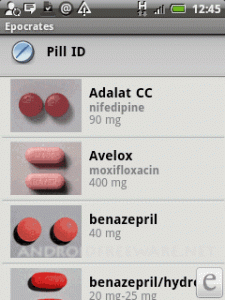 HIV. Pushing the modernization of the IT infrastructure in this world will have innumerable ripples through the rest of the country. Everyone in this country is intimately familiar with the healthcare system, and once something works in the hospitals, and works well, it will spread across the region, mind the analogy; rather like a virus through every other extension of daily life. Introducing serious IT to health care is an essential fix and solution to reducting the grip of HIV escalation across the country.
HIV. Pushing the modernization of the IT infrastructure in this world will have innumerable ripples through the rest of the country. Everyone in this country is intimately familiar with the healthcare system, and once something works in the hospitals, and works well, it will spread across the region, mind the analogy; rather like a virus through every other extension of daily life. Introducing serious IT to health care is an essential fix and solution to reducting the grip of HIV escalation across the country.
So I get passionate about the role we Peace Corps is having in the country, and I’m beyond passionate about the inclusion of IT in the kingdom. It’s an opportunity to relive the mass saturation of IT into popular culture, and it’s an opportunity to be there on the threshold as a country pulls itself from developing economy to a developed one.
I am at the end of the day optimistic about the future of the country and the people I am serving. It is really such an exciting time to be in this country, I can’t possibly place a price tag on the personal benefits I have received from extending my service here. It’s a great time for the country, it’s a great time for me.
